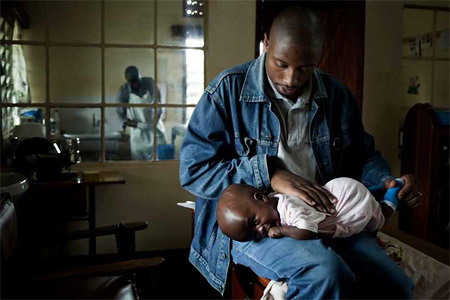Child-Help especially makes an effort for children with spina bifida and hydrocephalus in developing countries. Shortly after birth, this means surgery.
The back has to be closed surgically and if the baby develops hydrocephalus, it needs a shunt to drain the excess brain fluid. To guarantee the quality of care, training and quality control of all persons involved is needed: children, parents, self-help organisations, nurses, paediatricians, paramedics and surgeons.

Where necessary, Child-Help gives the missing medical materials and in all the projects, it supports the parent groups.
Child-Help expands with local partners a programme that assists these children and their parents for the rest of their lives.
If these children get treated in time, they can expand a full life in the family, neighbourhood and mainstream school.
Child-Help also helps prevent spina bifida by distributing folic acid tablets to mothers(-to-be) and by lobbying for food fortification.